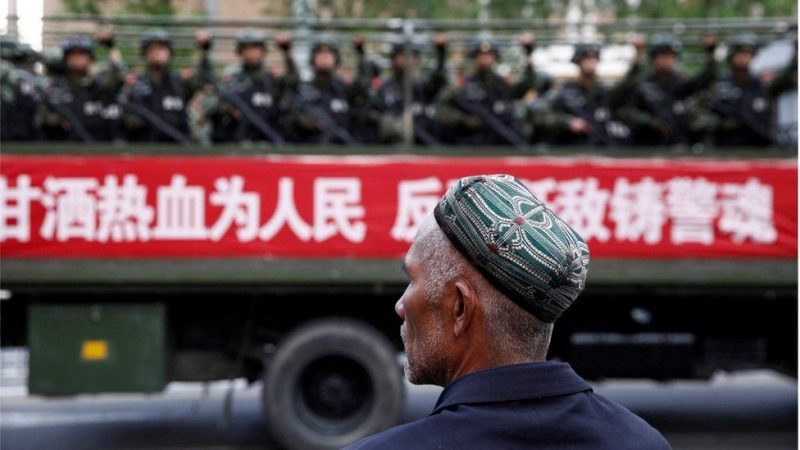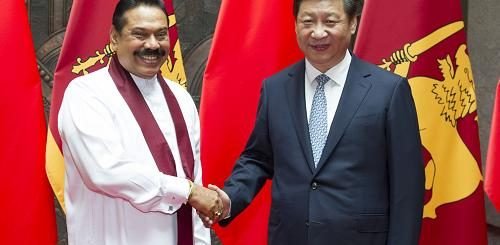UNHRC intensify its grip on China over the maltreatment of Uighur Muslims

China has been on the radar for most countries on various issues and now the issue of Uighur Muslims in the Xinjiang province is taking centre stage. On Tuesday, Canada’s parliament passed an order recognizing the treatment of the Uighur Muslims in China’s Xinjiang province as a ‘genocide’. The motion “Uighurs in China have been and are being subject to genocide” was passed unanimously in the Canadian House of Common. Thus, Canada becomes yet another country to join the US to voice against the atrocities being meted out to the Uighur on basis of their religion. The genocide has been subject to a multifaceted deliberation between different member states but no real-time solution has emerged so far. The details of Canada’s order on this state that Prime Minister Justin Trudeau did not vote on this and the order faced a few abstentions from his council of ministers too.

The Uighurs are a small community residing in the North West autonomous province in Xinjiang, China. Since the province shares borders with Central Asian countries, Islamic practices are integral to their way of living. The BBC set out parameters that explain veraciously the clash between the Uighur Muslims and the Chinese administration. The report reads out how China has used measures to both suppress and oppress their identities through detention camps, sterilizations and various dehumanizing activities, especially towards women. China continues to blame the East Turkestan Islamic Movement for ‘brainwashing’ these Uighurs and not complying with the institutions set up by the Chinese. The problem of the Uighurs crosses the perplexity of political order and lands itself into deeper intricacies of socio, economic, ethnic and human rights issues.
Political analysts see this as a potential downplay for Trudeau’s administration given the testament Canada has been trying to maintain a cordial and warm relation with most Asian countries, in particular China. Within few hours of the motion passed at Canada’s House of Commons, Chinese Ambassador to the country Cong Peiwu took to Twitter condemning the act and called this out as an outright interference to their internal matter. He stated, “We firmly oppose that because it runs counter to the facts. And it’s like, you know, interfering in our domestic affairs. There’s nothing like genocide happening in Xinjiang at all.” The question of human rights has stirred a political dilemma between countries as China has never admitted to this as a violation of human rights.
The motion was introduced in the house by Canada’s opposition party and one of the representatives stated that it was significant for the country to point out the atrocities committed by China. He mentioned, “will stand up for human rights and the dignity of human rights, even if it means sacrificing some economic opportunity”. The statement does navigate towards a possible economic tribulation between Canada and China, but the former seems to have decided on matters prerogative to the integrity of the country. Trudeau’s intensifying silence on this is concerning especially after the arrest of Huawei’s Meng Wanzhou in 2018 which pushed Canada to pursue ‘hostage diplomacy’ towards China.
The United Nations Human Rights Council has begun with its 46th session around a plethora of human rights issue have made it to the table for discussion and deliberation. The matter of the ‘genocide’ was taken up, but China’s representative disregarded all allegations and rather exemplified the country’s steps in promoting human rights. Chinese Foreign Minister Wang Yi at the UNHRC session said, “there has never been so-called genocide, forced labour or religious oppression in Xinjiang.” Referring to the report at the end of the 41st session of the UNHRC, it had called upon China to reprimand the damages caused. Stating one of the operative clauses, it mentioned, “We call on China to uphold its national laws and international obligations and to respect human rights and fundamental freedoms, including freedom of religion or belief, in Xinjiang and across China.” The report further affirmed, “We call also on China to refrain from the arbitrary detention and restrictions on freedom of movement of Uighurs, and other Muslim and minority communities in Xinjiang.” Despite cautious attempts to engage China to deter itself from maltreating Uighurs, there has been no official statement to reduce it on their part.
Following a similar such fashion, the United Kingdom who had resumed as a voting member to the UNHRC reminded the organization about the need to “challenge” this matter at the United Nations. British Foreign Minister Dominic Raab was sighted condemning the human rights violation in the ongoing Myanmar military coup, not out casting the Xinjiang adversary. He stated, “The situation in Xinjiang is beyond the pale. The reported abuses — which include torture, forced labour and forced sterilization of women — are extreme and they are extensive.” As a counter to this statement, Chinese Foreign Minister Wang Yi highlighted, “China is a country that has always protected and promoted the development of human rights. Over the past 60 years, Xinjiang’s economic aggregate has increased by more than 200 times, the per capita GDP has increased by nearly 40 times, and the average life expectancy has increased from 30 to 72 years.”
The United Kingdom time and again have tried to draw the organization’s attention towards the ‘genocide’. The detention centres which China terms as ‘vocational centres’ have notched headlines for weeks now. Even last year, the UK had challenged China’s position with an agenda to block its seat to the organization. The step was to show the country’s solidarity with the Uighur Muslims. While China enjoys the backseat on the agenda, countries have woken up to the horrors of this termed ‘genocide’. The events soon will be likely shaped by the US’s entry back into the UNHRC and the United Nations upholding its sanctity.



















